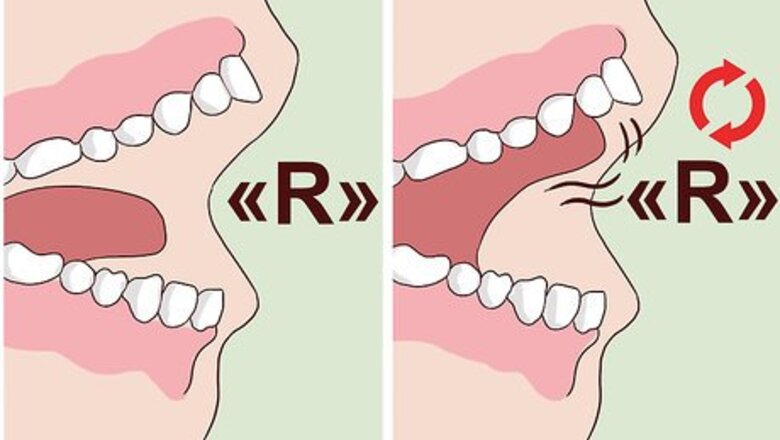
views
Pronouncing Words
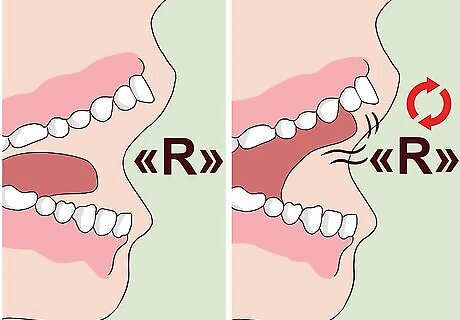
Roll your /r/. As with many European languages, the /r/ is rolled or trilled in Russian. So, when you are speaking English with a Russian accent, make sure you roll your Rs. Doing this consistently will make the accent sound more authentic. Don't trill your /r/ for too long, as this will make the accent sound fake. For instance, when you say the word "very," you will roll the /r/. It may come out sounding like a "d" at first, but with practice you can get the rolling sound down.
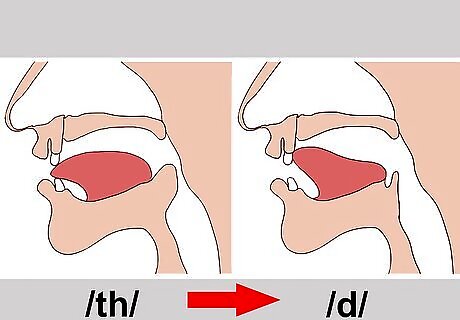
Replace the sound /th/ with the sound /d/. So instead of saying "this", say "dis". If you do this, it will help enhance your thick Russian accent. Don't do this if you want to portray a lighter Russian accent. This is not true at the ends of words, as in Russian, consonants are not voiced at the ends of words. Instead pronounce /th/ as /t/. For instance, you would say, "cot" for the word "cod" (the fish) instead of "coth".

Pronounce ending consonant sounds /d/, /v/, and /z/, as /t/, /f/, and /s/. In Russian, the consonants at the ends of words are not voiced. You would pronounce 'breeze' as 'breese.' Doing this will make your accent sound thicker. For instance, "love" becomes "lof" and "clod" becomes "clot".

Pronounce the vowel sound used in words like "In" more like the vowel in "Seen". "I will make this thing bigger" would become "I weel make thees theeng beegger." This is because the long "i" vowel sound occurs infrequently in Russian, so a native Russian speaker who is new to English will be more likely to say "ee" instead of the long "i" sound.
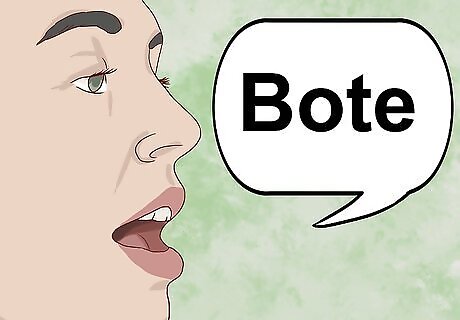
Pronounce the short "o" sound in a clipped way. In English, the sound is a diphthong, and you actually pronounce the sounds of "o" and "u," though the latter is very soft. For instance the word "boat" becomes much shorter, more like "bote". As we don't use the sound in English often, it is important to listen to native speakers of Russian.

Pronounce initial /w/ as /v/ or vice versa. Because the /w/ sound is not frequent in Russian, it can be difficult for Russian ELLs (English Language Learners) to pick up. While a lot of people usually only change the /w/ to /v/, the error can go both ways. Therefore, a more passable accent should contain both types of errors. For instance, you could say, "Vere is my west?" for "Where is my vest?"
Modulating the Cadence and Tone of Your Voice
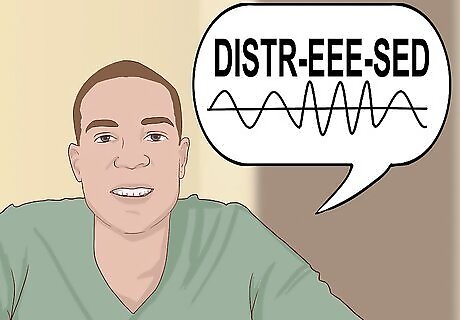
Pronounce stressed syllables with a higher pitch and for longer periods of time than in English. With stressed syllables ("stressed" in the word "distressed"), you should raise your pitch and lengthen the syllable just a bit. It shouldn't last forever, but should be noticeable to achieve the Russian accent.

Make your tone rise from the beginning and then fall at the end of declarative sentences. This is practically the opposite of intonation we have for questions (interrogative, not declarative sentences) in English where our tones are lower toward the beginning and higher toward the end. Practice this to help your overall speech sound Russian.

Slow down. As with most non-native speakers who are fairly new to speaking regularly, a Russian accent in English should be pronounced slower than a typical native English speaker. However, this shouldn't be drawn out so that it becomes ridiculous, just slow enough that it emphasizes the accent.
Listening to Native Russians Speak English

Listen closely to the way they pronounce each sound. It can help to have a transcript to mark up, especially if you are learning the accent for a script. You may want to listen to the recording several times to pick up the specific sounds. You may only concentrate on the 's' in one listening or you may focus on the vowels in another listening.

Mimic Russian cadence. Cadence, or the pattern of stressed and unstressed syllables, affects the way an accent sounds as much as the individual letters. Without the right cadence, you may sound like someone from a completely different area. Take Tom Kaine's impression of Donald Trump—he sounds nothing like Trump's New York accent.

Listen for tone. Tone can affect the way a sentence sounds as well. You can read about a tone should shift, but because of subtle differences between accents, it is important to hear it for yourself. Choose a recording or video with a lot of sentence variety so you can hear the way declarative, interrogative, and exclamatory sentences sound in a particular accent. In Russian, declarative sentences should be much more monotone than in English. Instead of emphasizing a word to give it meaning, such as "I do NOT want to go" (with all-caps represented heightened stress on a word," you would say "I do not want to go." For questions, the emphasis should fall on the word that is in question. For instance, instead of "Have you seen the new moVIE?," you would say, "Have you seen the NEW movie?" This can make the sentence seem rude to native English speakers.

Listen to a variety of Russian accents. Choose an accent that works for your character. Accents reflect not only region but class and historical period. For instance, in 19th-century Russia, the upper class was very familiar with French, and they often threw French terms into their dialogue. This kind of detail will allow you to perfect an accent.

Watch a video. This will help you see the way a Russian moves their mouth when speaking English. Oftentimes it can be easy to ignore this facet, but it can make the difference between a convincing and an unconvincing accent.




















Comments
0 comment